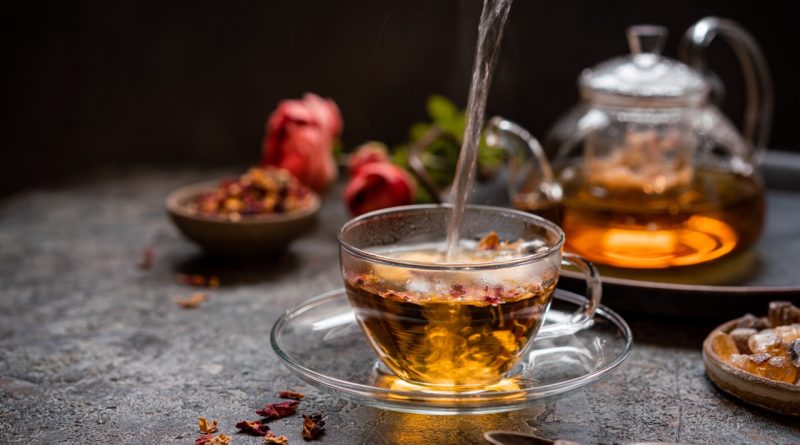The Importance Of Water Quality In Adagio Tea Preparation
The preparation of tea is an art that requires attention to detail, and one of the most critical elements in this process is water quality. For tea enthusiasts, particularly those who enjoy Adagio Teas, understanding how water influences flavor profiles can significantly enhance the overall experience. This article explores the importance of water quality in preparing Adagio teas, examining how it affects flavor, the key factors that influence water quality, best practices for selecting water, and the science behind water temperature and tea extraction.
Understanding the Role of Water in Tea Flavor Profiles
Water is often overlooked as a vital component in tea preparation, yet it plays a crucial role in determining the flavor and aroma of the final brew. The chemical composition of water, including its mineral content, pH level, and temperature, can significantly influence how tea leaves release their flavor compounds. For example, certain minerals can enhance the sweetness or bitterness of the tea, while others may impart a flat or dull taste.
Adagio Teas, known for their high-quality blends, can be particularly sensitive to the type of water used. When prepared with pure, soft water, these teas often exhibit their full range of flavors and aromas. Conversely, using hard or heavily chlorinated water can mask the subtle notes that make these teas special. Therefore, understanding the relationship between water quality and tea flavor is essential for anyone looking to maximize their tea-drinking experience.
Additionally, the temperature of the water can also alter the extraction of specific flavors. For instance, delicate green teas require cooler water (around 160°F to 180°F) to prevent bitterness, while robust black teas thrive in hotter water (around 200°F to 212°F). This interplay between water quality and temperature is vital for achieving the perfect cup of Adagio tea.
Key Factors Affecting Water Quality for Brewing Tea
Several factors contribute to the quality of water used for brewing tea. One of the most important is mineral content, which can vary significantly between different sources of water. Ideal water for brewing tea should have a balanced mineral composition that includes calcium, magnesium, and bicarbonate. These minerals can enhance flavor extraction and contribute to a more rounded taste profile.
Another key factor is pH level. Water that is too acidic or too alkaline can negatively affect the flavor of the tea. Ideally, the pH of the water should be close to neutral (around 7). Water that is too soft may lack the necessary minerals, while overly hard water can lead to a chalky or metallic taste. For Adagio teas, which often emphasize delicate flavors, achieving the right balance is crucial.
Lastly, the presence of impurities such as chlorine, sediment, or other contaminants can significantly alter the taste of tea. Using filtered or bottled water can help mitigate these issues, ensuring a cleaner and more enjoyable brewing experience. Regular testing of water quality can help identify any issues that might compromise the flavor of your tea.
Best Practices for Choosing Water for Adagio Teas
Choosing the right water for brewing Adagio teas involves a few practical steps. First, it is advisable to use filtered water, as it removes chlorine and other impurities that can negatively impact flavor. Home filtration systems or high-quality bottled water can be excellent alternatives to tap water, especially in areas with hard or heavily treated water.
Second, consider the mineral content of the water. Some specialty water brands offer options specifically designed for tea brewing, containing balanced minerals that enhance flavor extraction. If you prefer to use tap water, conducting a water quality test can help you understand its mineral profile and make any necessary adjustments.
Finally, always pay attention to the temperature of the water based on the type of tea you are brewing. Using a thermometer can help ensure that you are heating the water to the optimal temperature, which can vary widely depending on the tea type. By following these best practices, you can significantly improve the quality of your Adagio tea experience.
The Science Behind Water Temperature and Tea Extraction
The extraction of flavors from tea leaves is a delicate process influenced heavily by water temperature. When water is heated, it becomes more effective at dissolving various compounds, including catechins, tannins, and essential oils found in tea leaves. Each type of tea has its own ideal temperature range for optimal extraction, which can dramatically impact the flavor profile.
For instance, green teas, which are often more delicate, require lower temperatures (around 160°F to 180°F) to prevent the extraction of bitter compounds. On the other hand, black teas can withstand higher temperatures (around 200°F to 212°F), allowing for a fuller extraction of robust flavors. Understanding these temperature guidelines is essential for tea enthusiasts aiming to highlight the best characteristics of their Adagio teas.
Moreover, steeping time is also crucial, as it must be adjusted according to the water temperature. Higher temperatures often necessitate shorter steeping times to avoid over-extraction, which can result in bitterness. Conversely, lower temperatures may require longer steeping times to ensure that flavors are fully extracted. This scientific understanding of temperature and extraction can help tea drinkers achieve the perfect brew.
In conclusion, the quality of water used in tea preparation is a fundamental aspect that can greatly influence the flavor and overall experience of Adagio teas. By understanding the role of water in tea flavor profiles, recognizing the key factors affecting water quality, implementing best practices for water selection, and grasping the science behind water temperature and tea extraction, tea enthusiasts can elevate their brewing methods. A well-prepared cup of tea is not just a beverage; it is an experience best enjoyed when every element, including water, is carefully considered.
